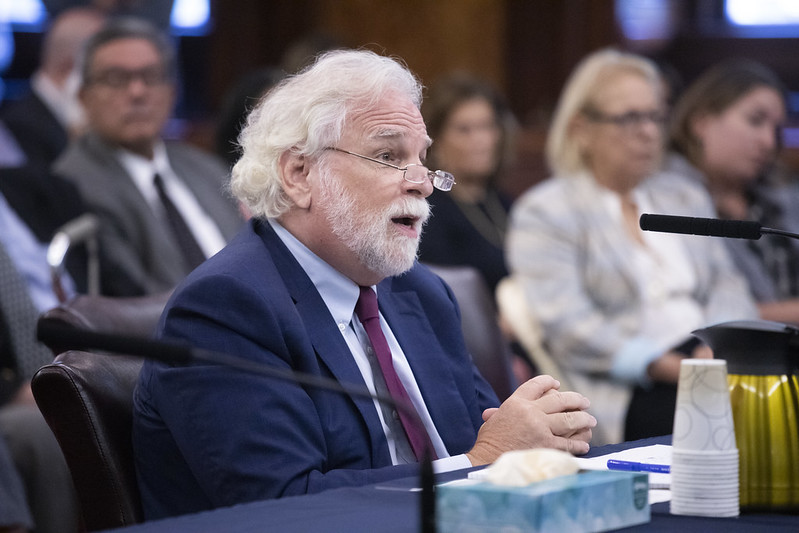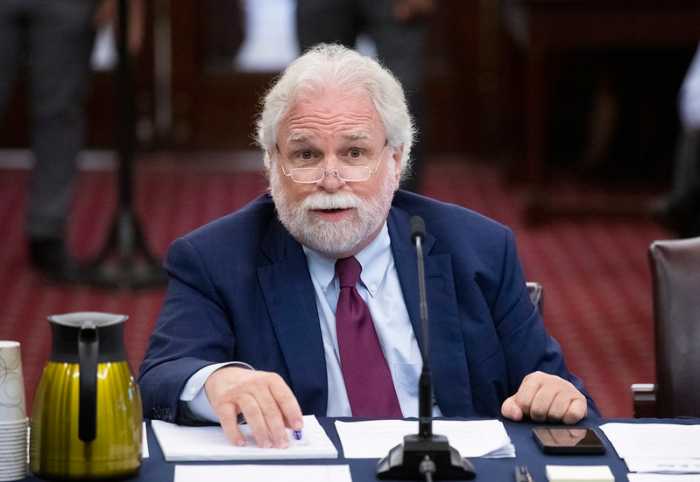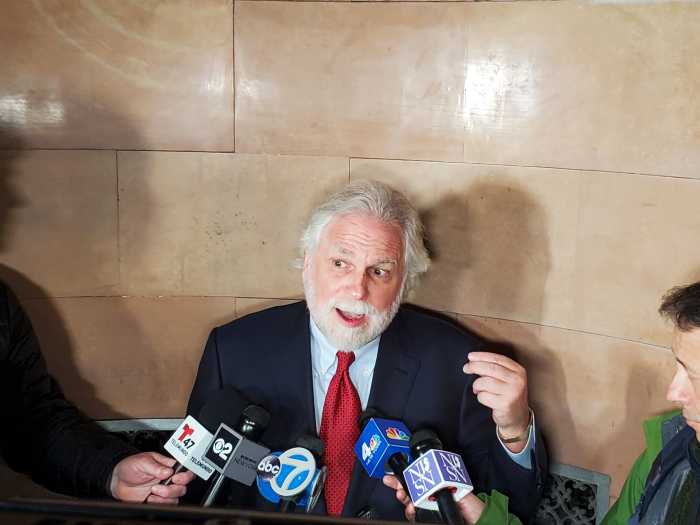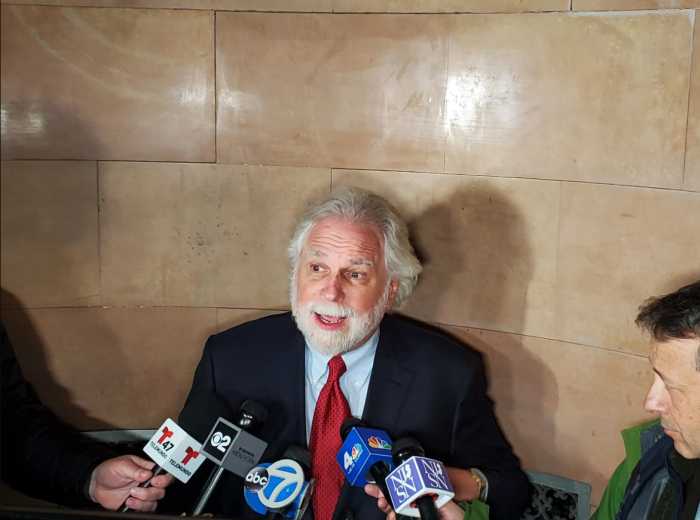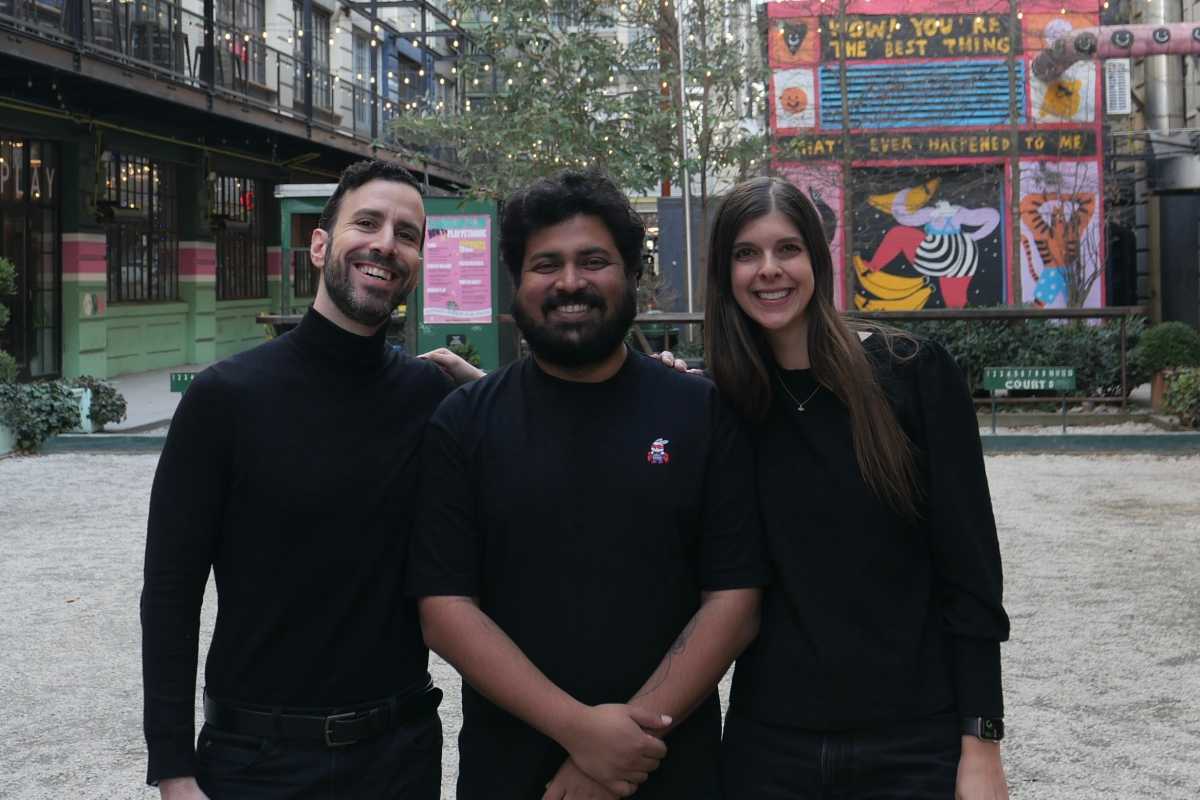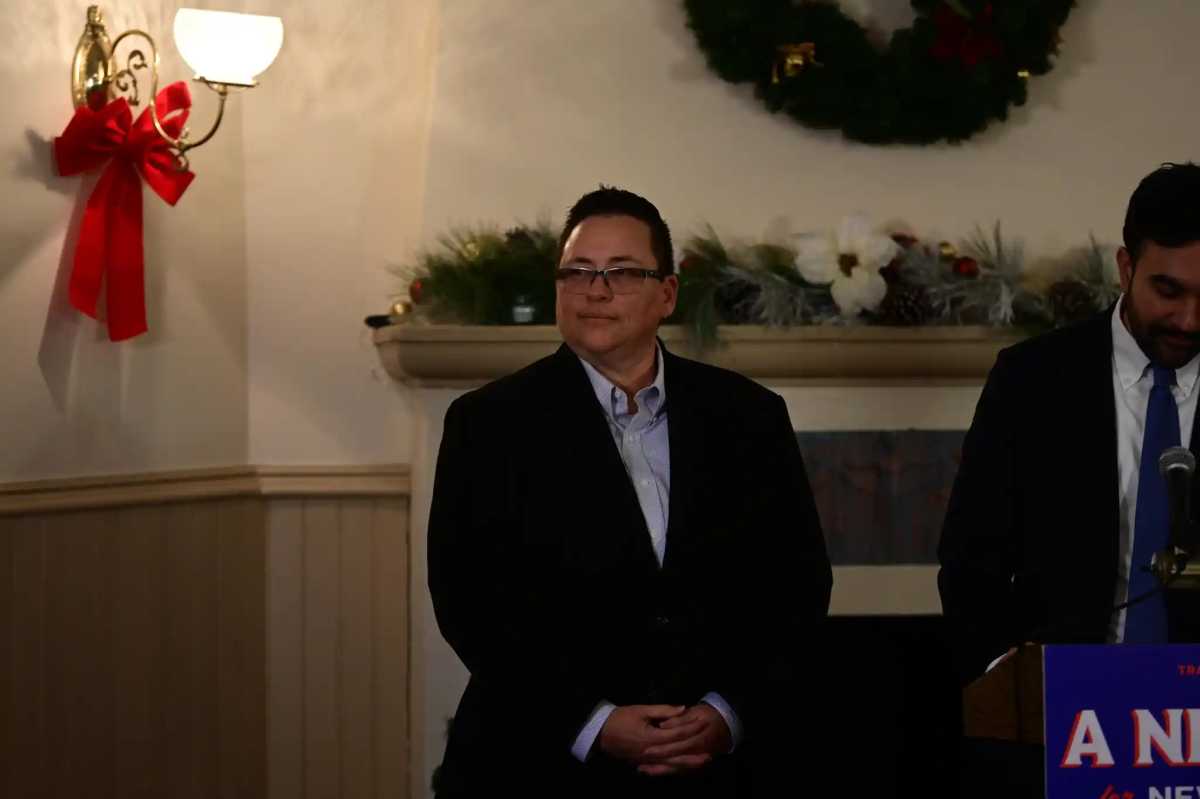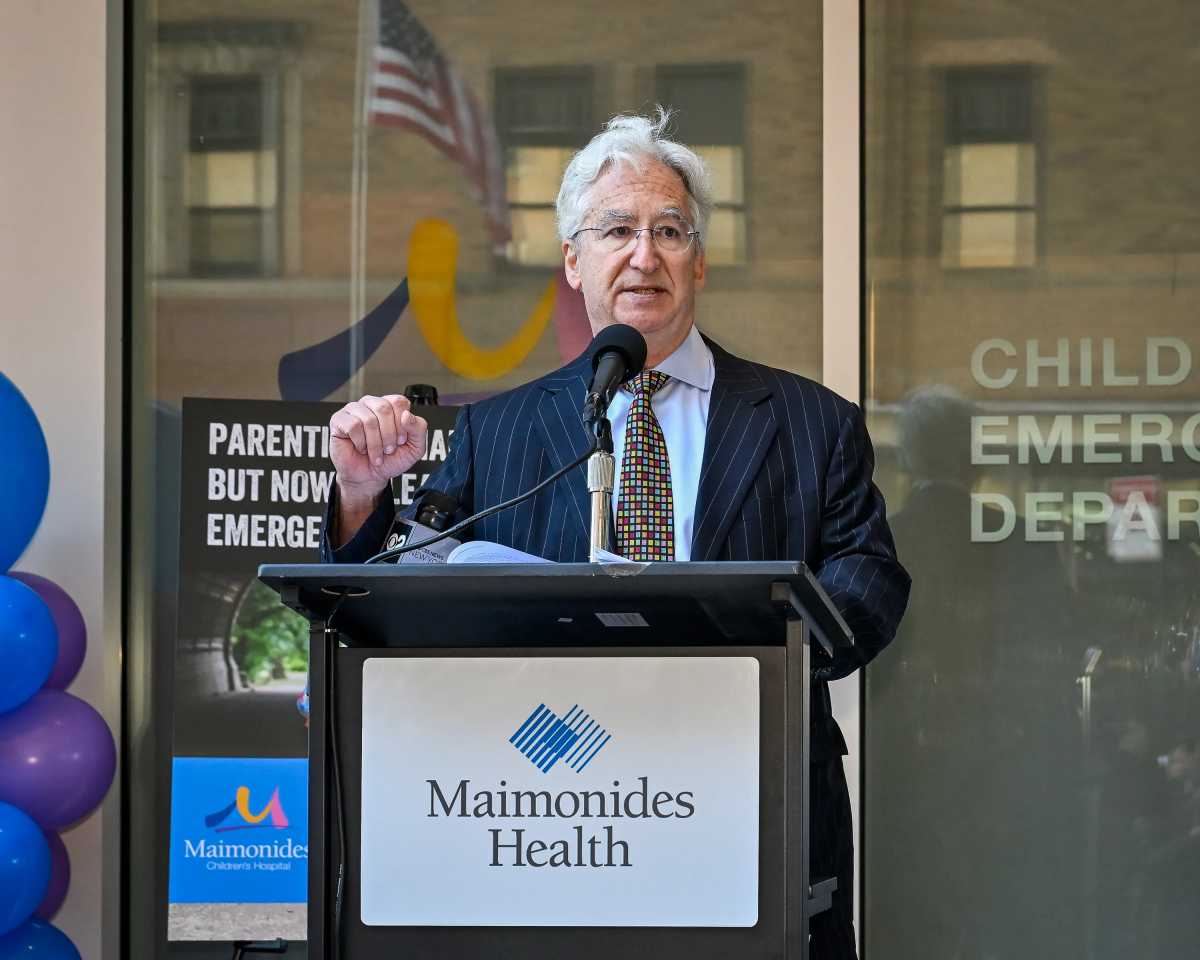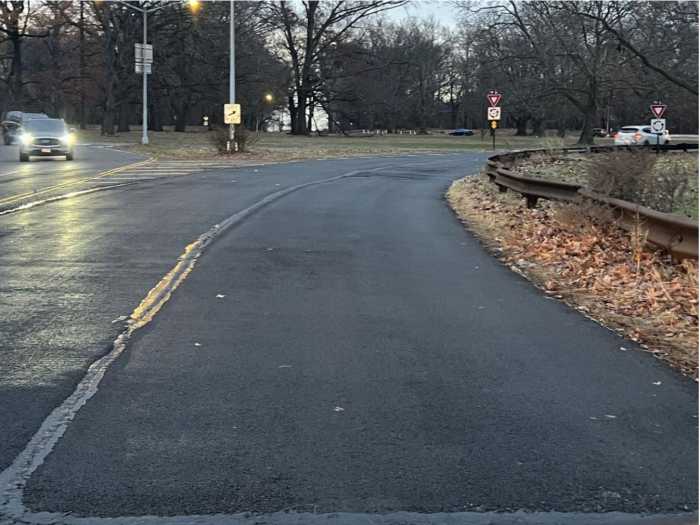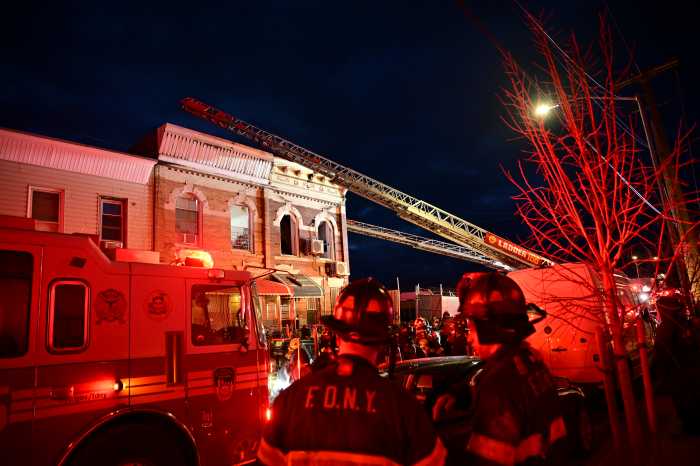Mayor Eric Adams is standing by his controversial nomination of white-shoe attorney Randy Mastro as New York City’s next top lawyer, even after Mastro was dragged over the coals by City Council members during a punishing 11-hour hearing earlier this week.
Hizzoner, during a Friday morning TV interview on NY1, was asked if he has any regrets in nominating Mastro to be corporation counsel as it appears unlikely the 51-member City Council will approve him after the hearing.
Adams insisted that in nominating Mastro he chose the right person for the job, even though it has been clear for several months that the council was not likely to approve him. Many council members’ opposition to Mastro stems from his time working in former GOP Mayor Rudy Giuliani’s administration and his history of representing conservative clients as a private attorney.
“This [is] the right person,” Adams said. “And we should not sit back and say, well, let’s try to find a way to do something that’s frictionless. We should try to do what’s right in the city. He [is] the right person.”
The mayor nominated Mastro for the role late last month, after its last occupant Sylvia Hinds-Radix stepped down earlier this year. The council has approval power over corporation counsel, a position that acts as a lawyer to all branches of city government and leads the Law Department.
Tuesday’s hearing saw one council member after another excoriate Mastro in lengthy statements, while continually cutting him off while he was in the midst of answering their questions. They slammed him for his role in the Giuliani administration and the conservative clients he represented as a private attorney at law firms like Gibson Dunn—where he worked before taking his current position at King & Spalding.
Those clients include former Republican New Jersey Gov. Chris Christie, whom Mastro represented in the Bridgegate scandal of 2014. Mastro ultimately got Christie off the hook by issuing a report that exonerated him and blamed the scandal on his top aide—Bridget Anne Kelly.
Council members also took issue with Mastro’s role in a 2021 case where he represented a neighborhood group on the Upper West Side seeking to kick homeless men out of the area’s Lucerne Hotel—where the city was housing them during the pandemic. They specifically referenced Mastro’s move to send private investigators disguised as plumbers to take shirtless photos of homeless advocate Shams DeBaron, who is now a close ally of the mayor’s.
Many council members also worry that Mastro would serve the mayor’s interests over their own, were he to be confirmed. The belief is based upon reports that Adams wanted a new corporation counsel who would be more aggressive in defending him on myriad legal troubles surrounding City Hall—including a sexual assault suit against him.
Mastro, for his part, has maintained that he would be as much the council’s lawyer as the mayor’s.
One council source told amNewYork Metro they were confused as to why the mayor continued to pursue Mastro after months of it being clear that there was little appetite to confirm him.
“Everyone’s kind of puzzled as to why they even went through with this,” the source, who spoke on the condition of anonymity, said. “Why put on the circus? And have it be drama, when the votes just aren’t there?”
Adams, during the Friday interview, said he sees the way Mastro’s nomination is playing out as a function of the democratic system—a line that has become a common refrain for him when it comes to disputes between himself and the council.
“This is our system of democracy, where you have different branches of government that will look at your nominees and make a determination,” he said. “My job is to put up a great nominee. It’s the City Council’s job is to determine that nominee’s ability to carry out its function.”
If the council ultimately rejects Mastro, when it votes on his nomination during a planned Sept. 14 meeting, Adams said “we go to the next step in the process.” Presumably, that would mean Adams nominating another candidate for the role.
Read More: https://www.amny.com/politics/



